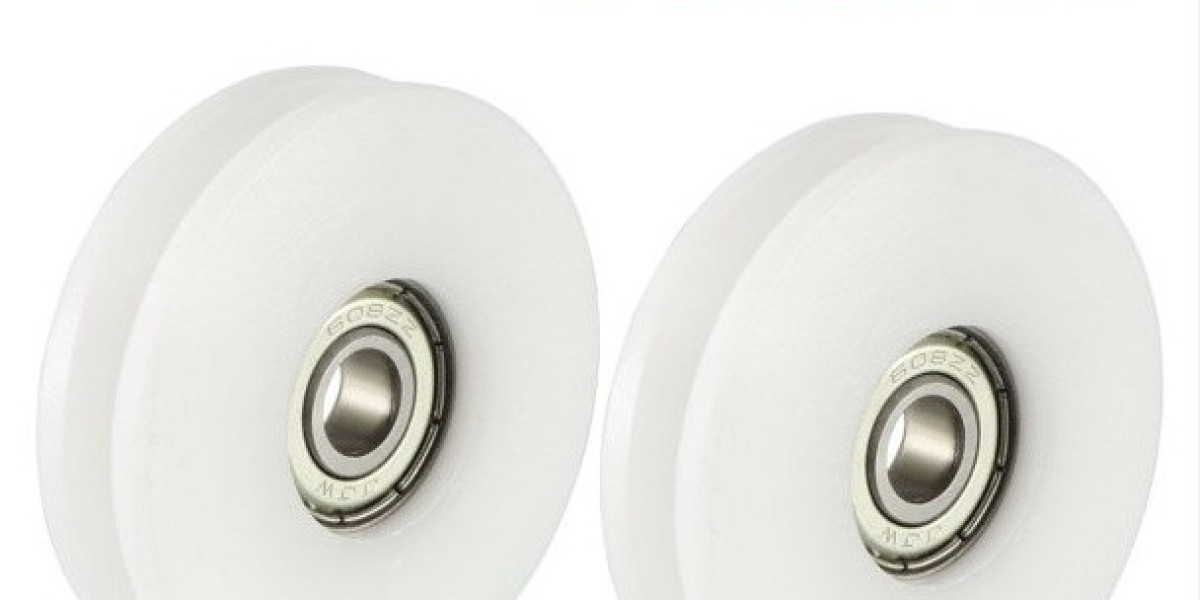The rapid advancement of modern machinery has led to a significant demand for components that reduce overall system weight while maintaining high performance. Among these components, plastic pulleys are emerging as the ideal solution for lightweight machinery applications. Their versatility, durability, and lightweight characteristics make them a preferred choice across a wide range of industries.
What Is Plastic Pulley?
Plastic pulleys are mechanical components made from various synthetic materials like Nylon, Polyamide (PA), Polyoxymethylene (POM), and Acetal. These materials are chosen for their unique combination of strength, wear resistance, low friction, and lightweight properties. Plastic pulleys are typically used in conveyor systems, motors, automotive applications, and other machinery where weight reduction and performance optimization are critical.
Unlike traditional metal pulleys, plastic pulleys offer a cost-effective and durable alternative that performs reliably even in challenging environments. Their ability to withstand harsh conditions while being significantly lighter makes them a perfect fit for lightweight machinery.
Why Plastic Pulleys Are Perfect for Lightweight Machinery
1. Lightweight Design for Energy Efficiency
One of the primary advantages of plastic pulleys is their lightweight design. In lightweight machinery, where every gram counts, reducing the weight of individual components can have a significant impact on the overall system performance. Lighter pulleys mean that the machinery requires less energy to operate, which leads to:
Reduced power consumption: With plastic pulleys, machines consume less power, as they do not put as much strain on motors or drive systems.
Increased efficiency: The lighter weight reduces the load on other parts of the machinery, improving the overall efficiency of the system.
Faster speeds: Lightweight pulleys allow for quicker acceleration and deceleration, resulting in better performance in time-sensitive applications.
Hune Tip: Hune plastic pulleys are specifically designed to help reduce energy consumption and improve operational efficiency, making them an ideal choice for lightweight machinery.
2. Durability and Resistance to Wear
Although lightweight, plastic pulleys are exceptionally durable. They are highly resistant to wear and tear, even in high-stress environments. Unlike metal pulleys that are prone to rust, corrosion, and fatigue under continuous use, plastic pulleys offer superior wear resistance due to their composition. This is especially important for lightweight machinery, where minimizing downtime is crucial for maintaining production efficiency.
Corrosion Resistance: Many plastic materials, such as Polyamide (PA) and Nylon, are naturally resistant to moisture and corrosive substances, making them ideal for machines operating in humid or chemically harsh environments.
Low Wear Rate: Plastic pulleys require less maintenance and fewer replacements, resulting in cost savings and longer operational lifespans.
Hune Tip: Hune's plastic pulleys are engineered for exceptional durability, ensuring they can handle the demands of lightweight machinery without compromising performance or longevity.
3. Reduced Noise and Vibration
Plastic pulleys are known for their noise-reducing properties. In machinery that operates in noise-sensitive environments, such as in medical equipment, office equipment, or precision instruments, reducing noise is a priority. Plastic pulleys generate less vibration and noise compared to metal pulleys, leading to:
Quieter operation: The noise generated by the pulley system is minimized, making the equipment more suitable for noise-sensitive environments.
Less vibration: The reduced vibration prevents wear on other machinery components, contributing to smoother and more stable operation.
Hune Tip: Hune plastic pulleys help keep your machinery operating quietly, providing a more comfortable and efficient working environment.
4. Lower Cost of Ownership
In addition to their performance benefits, plastic pulleys offer a significant cost advantage over metal pulleys. While plastic pulleys can be slightly more expensive initially, their long-term cost-effectiveness is evident when considering the following:
Reduced maintenance costs: Plastic pulleys are highly resistant to corrosion, rust, and wear, meaning they require less maintenance and fewer replacements.
Energy savings: The lightweight nature of plastic pulleys leads to reduced energy consumption, making machinery more cost-efficient in the long run.
Lower repair costs: Since plastic pulleys do not wear out as quickly as metal pulleys, the need for repairs and replacements is reduced, leading to lower overall operating costs.
Hune Tip: With Hune plastic pulleys, you can enjoy reduced maintenance, energy, and repair costs, making them a smart investment for lightweight machinery.
5. Easy Customization and Versatility
Plastic pulleys are versatile and can be easily customized to meet specific requirements. Whether it's the shape, size, or material composition, plastic pulleys can be designed to fit the unique needs of a variety of lightweight machinery applications. Additionally, plastic pulleys can be manufactured to offer various levels of strength, depending on the material used. Some common applications for plastic pulleys include:
Conveyor systems: Plastic pulleys are used in conveyor belts for transporting lightweight materials in industries such as food processing and packaging.
Motors and small appliances: Many small machines, such as printers and fans, use plastic pulleys to drive their mechanisms while keeping the overall weight of the equipment low.
Medical devices: Lightweight plastic pulleys are commonly used in medical machinery to reduce weight while maintaining precision.
Hune Tip: Hune plastic pulleys can be tailored to suit your specific machinery needs, ensuring a perfect fit and optimal performance for your lightweight equipment.
How to Choose the Right Plastic Pulley for Lightweight Machinery
When selecting plastic pulleys for your lightweight machinery, there are a few key factors to consider:
Material Type: Depending on the machinery's operating environment, you may need pulleys made from different materials. Nylon and PA are commonly used for general-purpose applications, while POM (Polyoxymethylene) is ideal for heavy-duty applications.
Load Capacity: Ensure that the plastic pulley is strong enough to handle the load required by your machinery without compromising performance.
Environmental Conditions: Consider factors such as temperature, humidity, and exposure to chemicals when choosing the material for your plastic pulleys.
Hune Tip: Hune offers a wide selection of plastic pulleys, including customized solutions tailored to meet the exact needs of your lightweight machinery.
In the modern world of machinery, reducing weight without sacrificing performance is a key factor for efficiency and cost savings. Plastic pulleys offer the perfect solution for lightweight machinery, providing benefits such as energy efficiency, durability, low noise, and cost-effectiveness. Their ability to withstand harsh environments, along with their ability to be customized to meet specific application needs, makes them an invaluable component in many industries.
By choosing Hune plastic pulleys, you ensure that your lightweight machinery operates at peak performance while minimizing maintenance costs, energy consumption, and downtime. With their many advantages, plastic pulleys are undoubtedly the future of efficient machinery design.Click https://www.hunepulley.com/ to konw more information.







